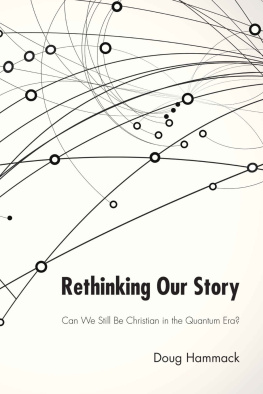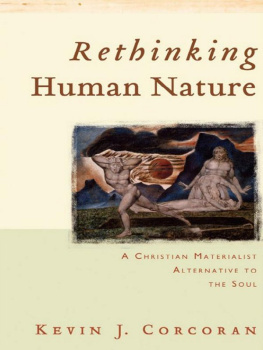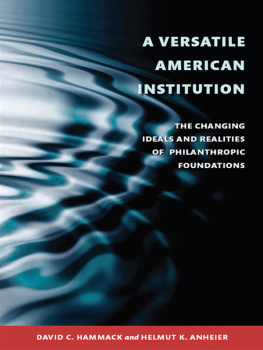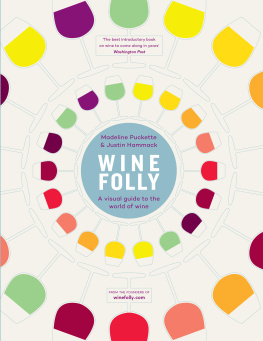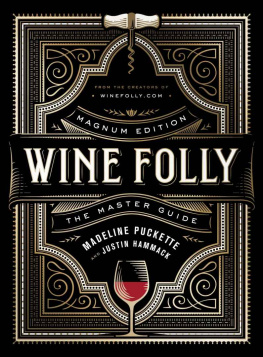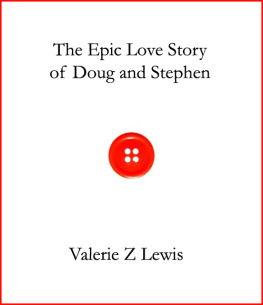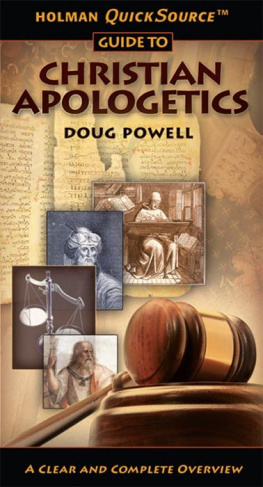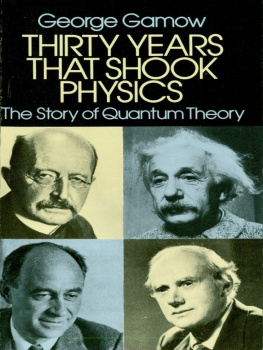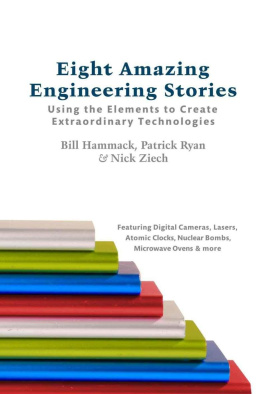Doug Hammack - Rethinking Our Story: Can We Be Christian in the Quantum Era?
Here you can read online Doug Hammack - Rethinking Our Story: Can We Be Christian in the Quantum Era? full text of the book (entire story) in english for free. Download pdf and epub, get meaning, cover and reviews about this ebook. year: 2014, publisher: Resource Publications, an Imprint of Wipf and Stock Publishers, genre: Religion. Description of the work, (preface) as well as reviews are available. Best literature library LitArk.com created for fans of good reading and offers a wide selection of genres:
Romance novel
Science fiction
Adventure
Detective
Science
History
Home and family
Prose
Art
Politics
Computer
Non-fiction
Religion
Business
Children
Humor
Choose a favorite category and find really read worthwhile books. Enjoy immersion in the world of imagination, feel the emotions of the characters or learn something new for yourself, make an fascinating discovery.
- Book:Rethinking Our Story: Can We Be Christian in the Quantum Era?
- Author:
- Publisher:Resource Publications, an Imprint of Wipf and Stock Publishers
- Genre:
- Year:2014
- Rating:4 / 5
- Favourites:Add to favourites
- Your mark:
- 80
- 1
- 2
- 3
- 4
- 5
Rethinking Our Story: Can We Be Christian in the Quantum Era?: summary, description and annotation
We offer to read an annotation, description, summary or preface (depends on what the author of the book "Rethinking Our Story: Can We Be Christian in the Quantum Era?" wrote himself). If you haven't found the necessary information about the book — write in the comments, we will try to find it.
Doug Hammack: author's other books
Who wrote Rethinking Our Story: Can We Be Christian in the Quantum Era?? Find out the surname, the name of the author of the book and a list of all author's works by series.
Rethinking Our Story: Can We Be Christian in the Quantum Era? — read online for free the complete book (whole text) full work
Below is the text of the book, divided by pages. System saving the place of the last page read, allows you to conveniently read the book "Rethinking Our Story: Can We Be Christian in the Quantum Era?" online for free, without having to search again every time where you left off. Put a bookmark, and you can go to the page where you finished reading at any time.
Font size:
Interval:
Bookmark:

Can We Be Christian in the Quantum Era?
Douglas Hammack

Rethinking Our Story
Can We Be Christian in the Quantum Era?
Copyright 2014 Douglas Hammack. All rights reserved. Except for brief quotations in critical publications or reviews, no part of this book may be reproduced in any manner without prior written permission from the publisher. Write: Permissions, Wipf and Stock Publishers, W. th Ave., Suite , Eugene, OR 97401 .
Resource Publications
An Imprint of Wipf and Stock Publishers
W. th Ave., Suite
Eugene, OR 97401
www.wipfandstock.com
isbn : 978-1-62564-291-2
eisbn 13: 978-1-63087-151-2
Manufactured in the USA
Thank you Julie Thomson.
Thank you for your sensitivity to those who do not have a Christian reference. Thank you also, for helping me be kind and gentle to those who do.
Thank you Karen Beesley.
Thank you for corralling unruly words into grammatical sanity. My eyes have been opened. What works for speakers doesnt always work for writers. Thank you.
Thank you Judy Davis.
Thank you for reading, correcting, and encouraging. And I especially thank you for keeping my calendar straight. If it werent for you, I couldnt have done this project.
Thank you NRCC Church Council (and especially Robin Camu).
Thank you for pushing me out of the business of running a church, and into the business of soul-tending, speaking, and writing. I love my new life!
Thank you Denise.
Thank you for sending me away to write and handling life while I was gone. But what am I saying? You make our lives work all the time. Thank you.
A Tale of Three Balls
S ince this is a book about rethinking stories, lets begin with one.
It is a simple story, a story about three balls. Each ball is thrown at a different time in history, each ball tells us something about the time in which it was thrown, and each ball suggests how the church adapted to the worldview of its time.
The First Ball: The Middle Ages and the Unknowable Unknown
Thrown in the year 1300 , before the Renaissance and Enlightenment, the path of our first ball was determined by the physics of the day. At that time, the world was a frighteningly unknown and unknowable place. Powerful forces were at work all around, forces we could not fully understand. Lightning struck, but we knew nothing about electrons or protons. Women died in childbirth, but we didnt understand the circulatory system. Crops failed, but we could not imagine microorganisms. There were so many unknowns that we developed a philosophy about reality that told us lifes mysteries were simply unknowable to everyday people. It was not expected that humans could understand the deep mysteries of existence.
In this world, the path of the first ball, like most day-to-day realities, was determined by magical, mysterious, unknowable forces. Perhaps the balls path was determined by tea leaves, or broken mirrors, or black cats. Perhaps the old lady at the edge of town put a spell on the ball. Superstition and magic were necessary guesswork for people who believed themselves powerless in a world that was intrinsically incomprehensible.
And the church of the Middle Ages adapted well to this worldview.
Recognizing peoples basic need for meaning in an unpredictable universe, the church told the story of God in a way that fit with the reality of the day. The church positioned itself as a powerful agent, able to discern the mysteries of the universe, able to use spiritual power to protect, guide, and inform people. The church gave people access to powerful, religious magic. Celebrating the Eucharist, the priest would intone from the front, This is the body, or in Latin, ho corpus est . The poor souls in the back knew something powerful was happening, but couldnt hear very well. It sounded like the priest was saying hocus pocus, an incantation they took home to use themselves.
To match this pre-Enlightenment worldview, the church adopted the role of guardian, protector, and advocate. It helped people cope in their unknowable universe. Well get you to heaven, church leaders said. Well say the prayers that will get you saved. Well read the Bible for you, explain the world to you, tell you what to do, what to say, and what to believe. Well stand up for you against the wild forces in this dangerous world. Just do what we say, and youll be fine.
And this powerful, parental, patriarchal church, this advocating-for-the-outmatched church, worked quite well for almost a thousand years. But then, Isaac Newton threw a second ball.
The Second Ball: The Enlightenment and the Solid Universe
The path of the second ball was determined by Newtons precise, mechanical, elegant mathematical formula: F=ma ; Force equals mass times acceleration.
A shift was afoot in the 1500 s. A crop of scientists were showing us that things once unknowable could be known. Galileo, Copernicus, and others made significant discoveries, but more than that, changed how we thought about reality. They introduced a we can figure things out mantra to Western society. By the early 1600 s, everything from the circulatory system to the orbital paths of planets was becoming understandable, and a new view of reality began to emerge, the view that the universe was a precise and understandable place. Descartes capped this revolution, telling us that not only could we figure stuff out, but our whole identity as human beings was our ability to do so ( I think, therefore I am ).
Reality changed. Things once unknowable became simply unknown as yet. The universe became solid, precise, mechanical, and figure-out-able. A universe governed by discoverable laws and principles took root in our minds. We called our new worldview The Enlightenment. We could have called it the We-Can-Figure-Stuff-Out worldview.
Newtons ball changed everything. Once it did, the everyday world had to adapt. In the philosophically unknowable universe, we needed champions: powerful people able to discern the unknowable and help us out. Consequently, social structures of the Middle Ages were built on a hierarchy of advocates that helped us navigate lifes harsh realities.
In the Middle Ages we needed kings to govern us. Commoners couldnt fathom the mysterious affairs of state. We deferred governance to the divine right of the king. God appointed one man and one man only to determine political policy. His was a divine mandate to discern unknowable mysteries and lead us. But when the universe changed we began to believe we could figure out political stuff. Consequently, we had to build a new governing system for the new reality. And we did. We called it democracy. Now everybody got a vote, because everybody could figure out politics.
We also had to rebuild our economic system. In the old world order, we deferred economic production and distribution to a champion who possessed divinely ordained economic insights, the feudal lord. But once the universe changed, and we realized that we could figure this stuff out, we had to build a new economic system. Feudalism gave way to capitalism. We gave everybody economic access because in the new reality, we believed everybody could figure out economics.
In this new universe, the church had to be rebuilt as well.
So we had a Reformation. No longer needing the church to be our champion, we created a new system in which everybody could figure religion out on their own. We didnt need a hierarchy of advocates to mediate our salvation anymore; we could do that on our own ( sola fide ). We didnt need champions to read scripture for us and tell us how to live. What we needed was a printing press. What we needed was access to the scriptures ( sola scriptura) , an authoritative document with which we could figure religion out. So we began to rebuild our religion, hammering out a personal faith independent of the pesky meddling of the old world church. The battle cry of the Reformation was informed by the battle cry of the Enlightenment: We can figure this stuff out!
Font size:
Interval:
Bookmark:
Similar books «Rethinking Our Story: Can We Be Christian in the Quantum Era?»
Look at similar books to Rethinking Our Story: Can We Be Christian in the Quantum Era?. We have selected literature similar in name and meaning in the hope of providing readers with more options to find new, interesting, not yet read works.
Discussion, reviews of the book Rethinking Our Story: Can We Be Christian in the Quantum Era? and just readers' own opinions. Leave your comments, write what you think about the work, its meaning or the main characters. Specify what exactly you liked and what you didn't like, and why you think so.

